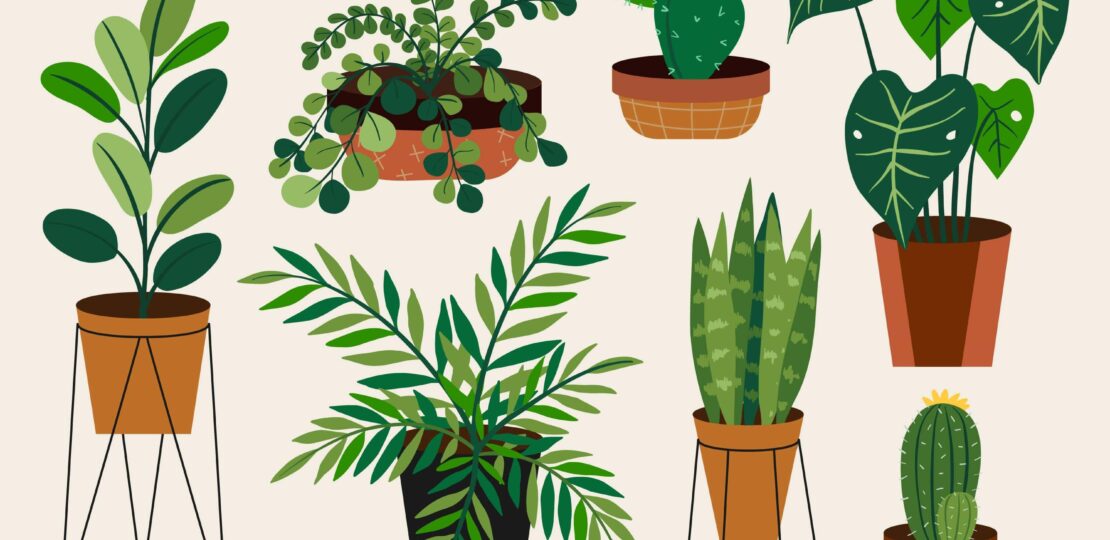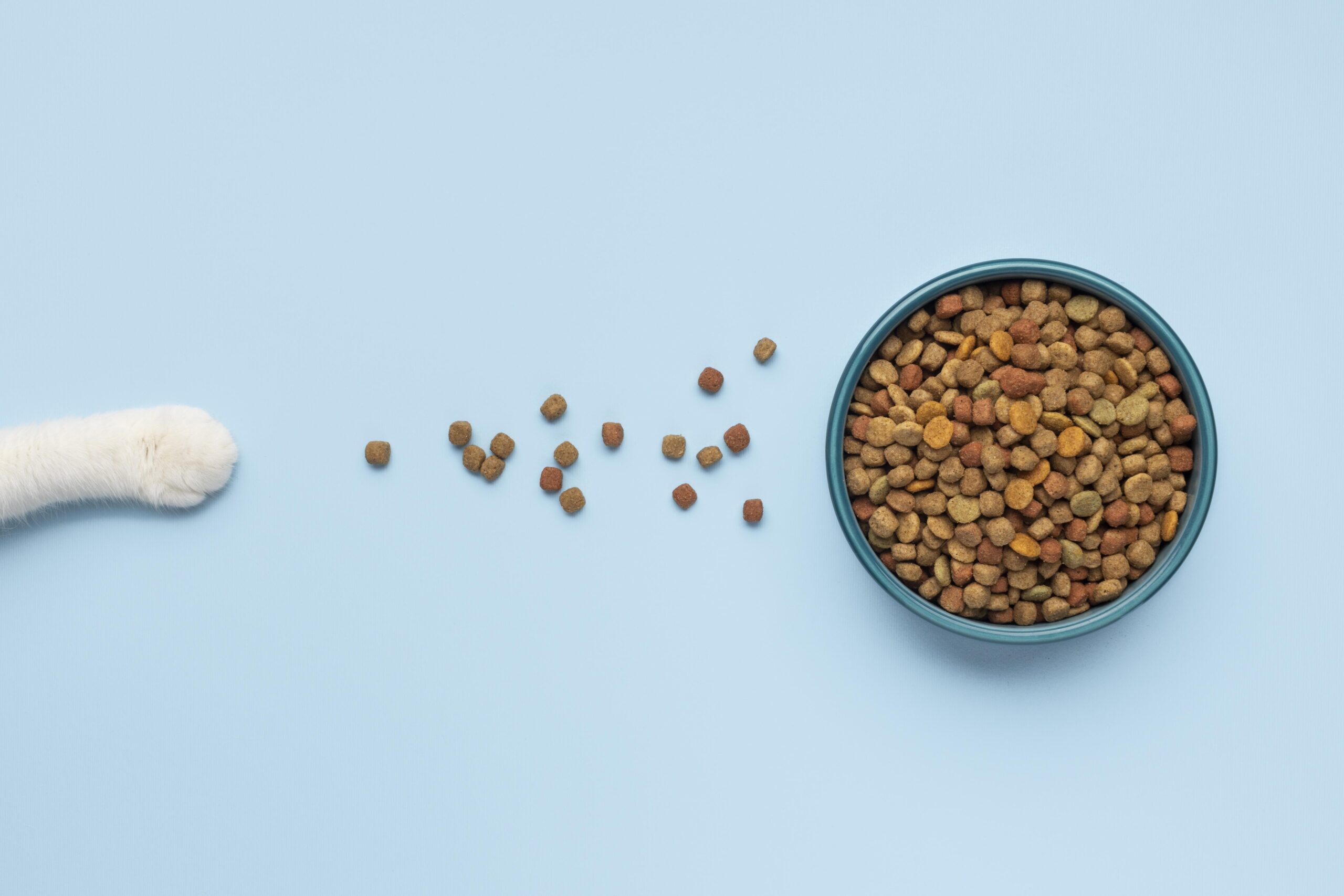Best 10 Pet Friendly House Plants
Are you a pet owner and a plant lover? We are too! This is why we are constantly on the lookout for pet friendly plants that won’t threaten your pet’s health when they take a nibble. If only we could count the amount of times we’ve found our plants nibbled by our tabbies! Many plants are toxic to both cats and dogs and checking to see which ones are safe can help you create a wonderful environment at home for your pets.
Popular Houseplants are Among the Most Toxic Plants for Pets
Lilies are easily one of the most popular houseplants. But did you know that it’s one of the most toxic plants for pets? Often Lilies are so toxic that it could result in death. In fact, many popular houseplants that we all love are considered toxic. To avoid this, we’ve created a list of ten pet friendly plants that are great for indoor and outdoor spaces to prevent any injuries! As pet parents, we must be on the lookout for any safety concerns at home.
What To Do If Your Pet Has Ingested a Toxic Plant?
Seek veterinary help immediately even if your pet took only a nibble. It only takes a small amount of a toxic plant to cause severe injuries to your pets.
How Do Toxic Plants Affect Your Pets?
While the symptoms may differ based on the plant and pet, any symptom whether minor or major can have lifelong lasting effects that may contribute to serious health issues. Most importantly, protecting your pets with pet friendly plants can also help you with unnecessary vet visits. Allow your pets to roam in your home in a safe and protected environment.
Here are ten pet friendly plants to protect your pets while providing natural decor in your home!
Click on a Plant to Learn More or a Guide on Identifying Toxicity
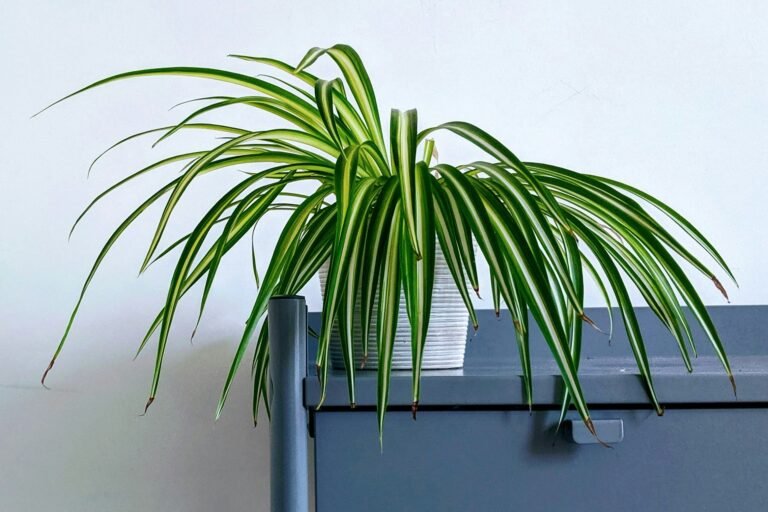
1. Spider Plant
Aesthetic Appeal
Spider plants are among the popular choices for pet owners and plant lovers for their non-toxic properties. While they add a soft, natural touch to your home’s decor, you’ll also be reassured that ingestion of the plant is completely harmless. As spider plants create offshoots that hang off the plant, it’s ideal to plant them on hanging pots.
Personally, one of our favorite ways to regrow spider plants is by cuttings. At the end of the stems that grow out of the parent plant, new baby plants form that can easily be replanted.
Here are ten pet friendly plants to protect your pets while providing natural decor in your home!
How To Care
Light: Prefers bright, indirect light, but tolerates lower light.
Water: Overwatering can create root rot. Soil must dry out slightly between waterings.
Difficulty: Low Maintenance. Perfect for Beginners.
Pros & Cons
Pros
- May thrive in various lighting conditions.
- Creates baby plants for easy propagation
Improves indoor air quality - Safe for pets.
Cons
- If overwatered, can easily rot from its roots.
- Some cats may become obsessed with the hanging “baby plants” or leaves.
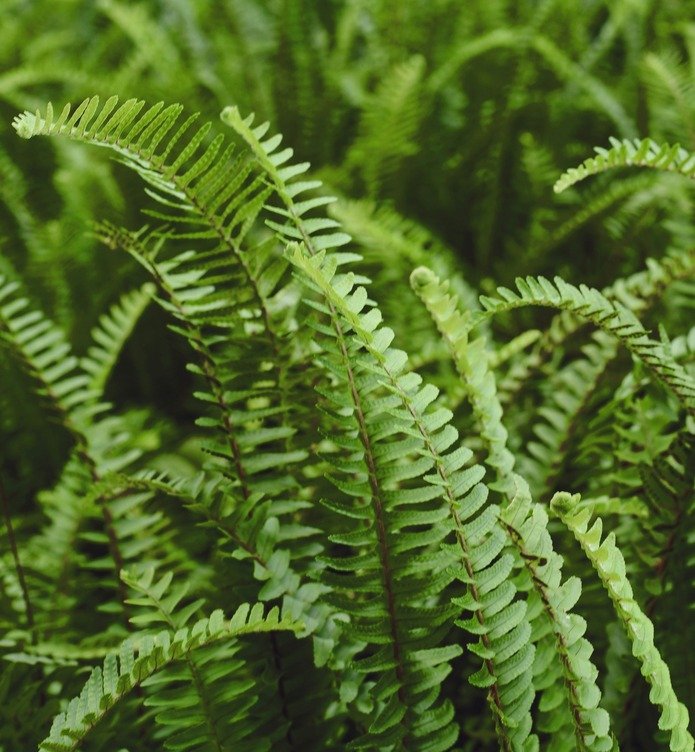
2. Boston Fern
Aesthetic Appeal
Boston ferns can create your household décor to appear luxurious with its elegant feathery and arching fronds. It provides your home with lush green foliage that helps brighten up any indoor space. Since Boston ferns have feathery, arching fronds, it’s planted in a hanging pot. While it may entice pets to nibble them, it’s completely non-toxic to pets making them a safe choice for your home.
How To Care
Light: Prefers bright, indirect light and some humidity. Keep them away from direct sunlight in front of windows as this may damage the foliage.
Water: Loves consistent moist soil. Soil must not be soil as it may lead to root rot.
Difficulty: Moderate. Requires some attention to humidity and watering.
Pros & Cons
Pros
- Add a vibrant touch to indoor spaces with lush green foliage.
- Perfect natural air purifier.
- Safe for pets
Cons
- Requires regular misting or a humid environment.
- May shed leaves if conditions aren’t met.
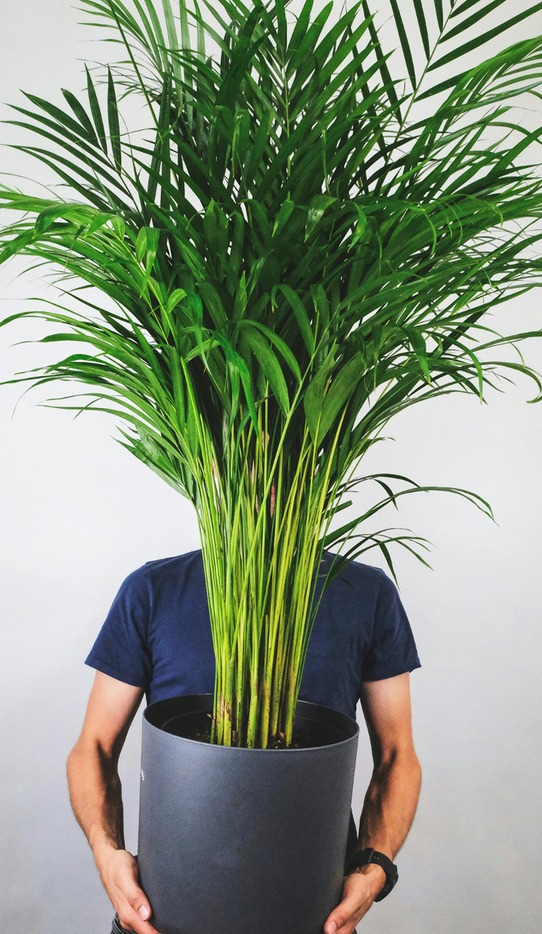
3. Areca Palms
Aesthetic Appeal
With its elegant and feathery fronds, the areca palm is another excellent selection to bring luxury into your home. It provides a tropical, resort style feel into your living space. It’s an ideal plant for bright corners! In fact, the areca palms are excellent choice if you’d like to fill up your space. These are larger plants that are also non-toxic to pets making them a perfect choice even if they nibble on the fronds.
How To Care
Light: Thrives in bright, indirect light. Perfect for bright corners.
Water: Soil must be slightly moist. Avoid overwatering that may cause root rot.
Difficulty: Moderate. Requires frequent watering and close attention to humidity.
Pros & Cons
Pros
- Adds a tropical touch to your home.
- Fills up empty spaces, as they’re larger plants.
- Helps filter indoor air pollutants.
- Safe for pets.
Cons
- In dry air, brown leaf tips may develop.
- Requires attention to watering and humidity.
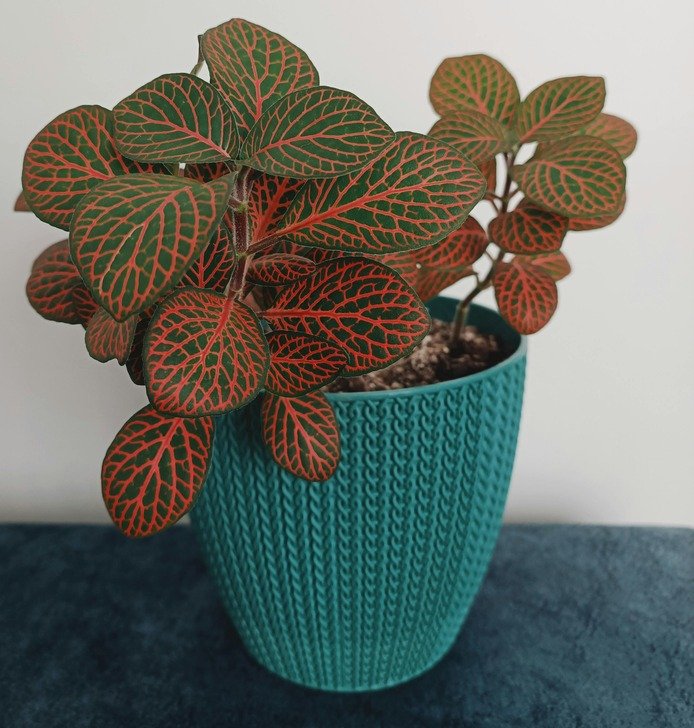
4. Nerve Plants
Aesthetic Appeal
Widely known for their veined leaves in different shades of pink, red, or white, nerve plants will add a pop of color into your home. Whether on tabletops or terrariums, nerve plants are excellent pet safe plants that are non-toxic despite their exotic looking foliage. If your cat or dog is curious, don’t worry, they’ll be safe at home.
How To Care
Light: Prefers low to medium indirect light.
Water: Soil must be evenly moist, and doesn’t tolerate dry soil.
Difficulty: Expert. Not ideal for beginners. Requires more attention to consistent moisture and humidity to thrive.
Pros & Cons
Pros
- Vibrant leaf patterns.
- Thrives in small spaces including terrariums.
- Safe for pets.
Cons
- Requires regular watering and high humidity.
- Plant will wilt quickly if neglected.
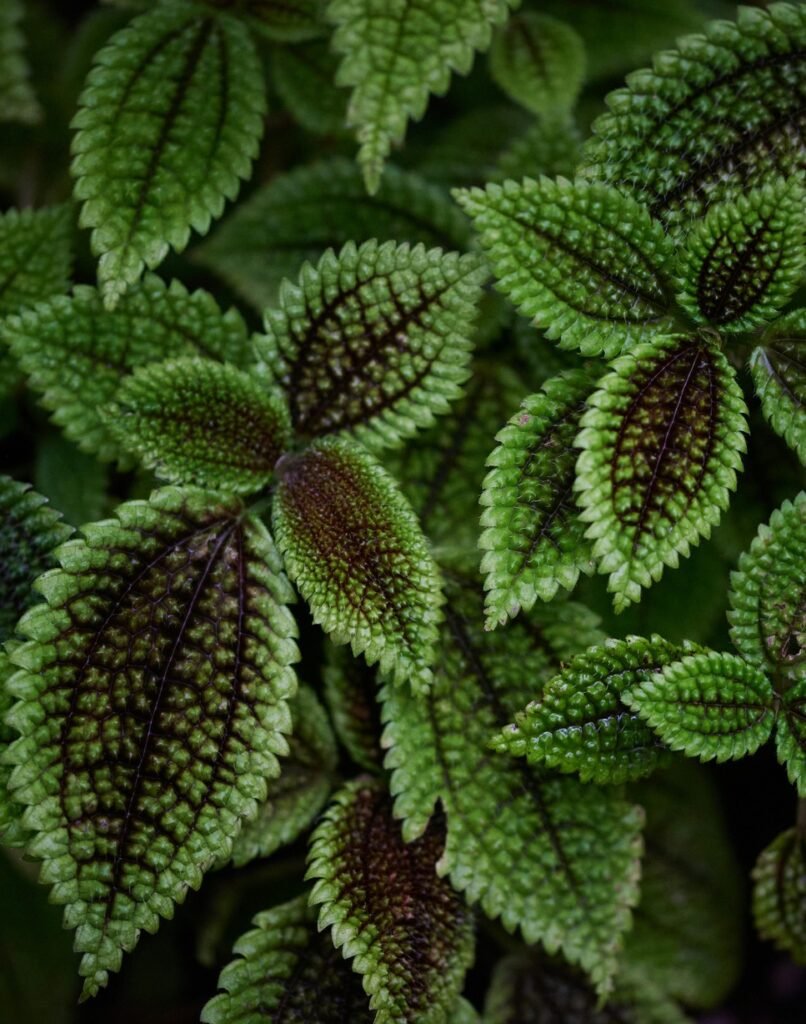
5. Friendship Plant
Aesthetic Appeal
Friendship plants have textured deep green leaves with slight bronze like undertones. Adding this plant into your home will add a unique appeal to your space. While its texture may appear harming to pets, rest assured it’s non-toxic to cats and dogs.
How To Care
Light: Prefers bright, indirect light.
Water: Soil must be moist, never soggy. If overwatered, roots may rot.
Difficulty: Perfect for beginners. Easy to grow with regular watering.
Pros & Cons
Pros
- Compact size, ideal for small spaces.
- Easy to propagate to multiply your plants.
- Safe for pets.
Cons
- Sensitive to sudden changes to temperature.
- Needs consistent moisture to avoid losing leaves.
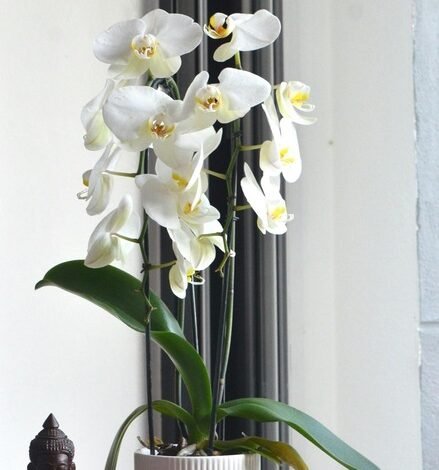
6. Orchids
Aesthetic Appeal
Orchids are an excellent choice for pet owners. Its blooms bring a joyful and vibrant touch into your home! It can help elevate your space with added beauty. Unlike Lilies (fatally toxic to pets), Orchids are 100% pet-friendly offering a viable option for your home.
How To Care
Light: Prefers bright, indirect light.
Water: Water sparingly, prefers a well draining potting mix. Do Not Plant in Soil as it may cause root rot. Believe us, we found out the hard way, RIP.
Difficulty: Moderate. Requires some attention, but can thrive with proper care. Once you get the hang of them, it’s relatively easy.
Pros & Cons
Pros
- Stunning, vibrant long-lasting blooms.
- Adds a touch of elegance.
- Safe for pets.
Cons
- Requires more attention than most plants.
- Watering must be done sparingly. Roots should never sit on water or moist soil.
- Needs repotting occasionally.
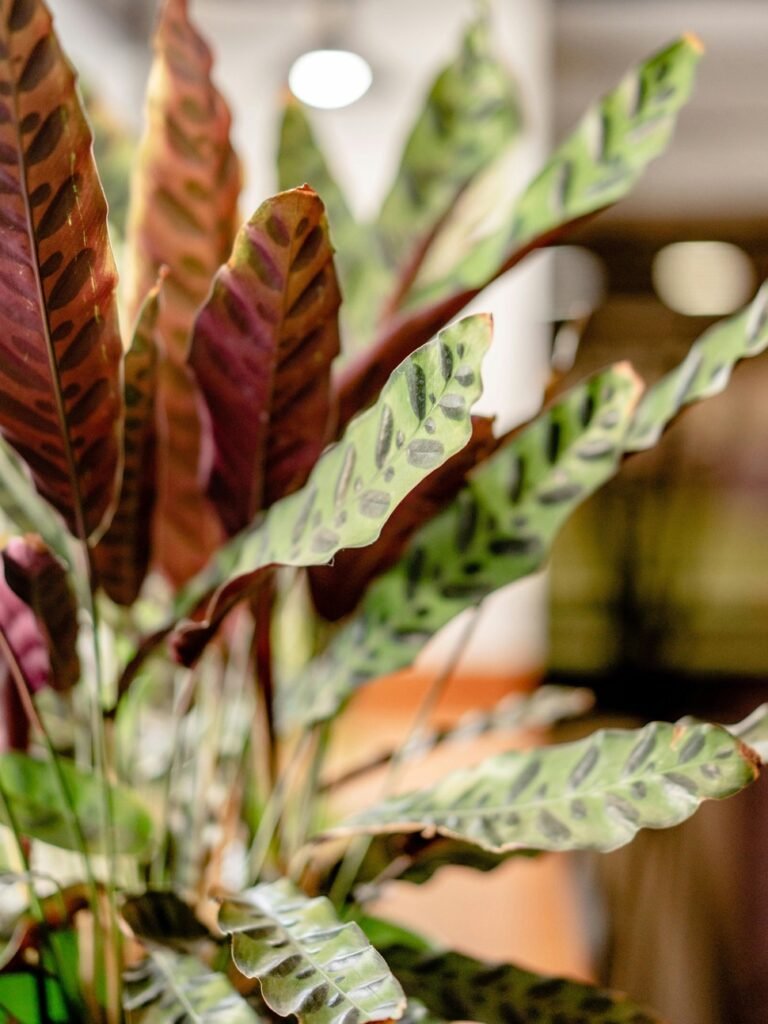
7. Rattlesnake Plants
Aesthetic Appeal
While rattlesnake plants are similar to snake plants, there’s one big distinction: they’re non-toxic to pets. Rattlesnake plants feature long, wavy leaves with a unique touch of dark green on the top with purple on the underside. It’s definitely a plant that is eye-catching and your guests will love it! While its name is intimidating (unless you LOVE snakes), it’s 100% safe for pets.
How To Care
Light: Prefers bright, indirect light.
Water: Soil must be kept evenly moist and at high humidity.
Difficulty: Moderate. Attention to watering and humidity is important.
Pros & Cons
Pros
- Unique leaf patterns with beautiful colors.
- Adds a dramatic yet elegant touch to your home.
- Safe for pets.
Cons
- Requires high humidity and consistent moisture.
- Sensitive to tap water chemicals.
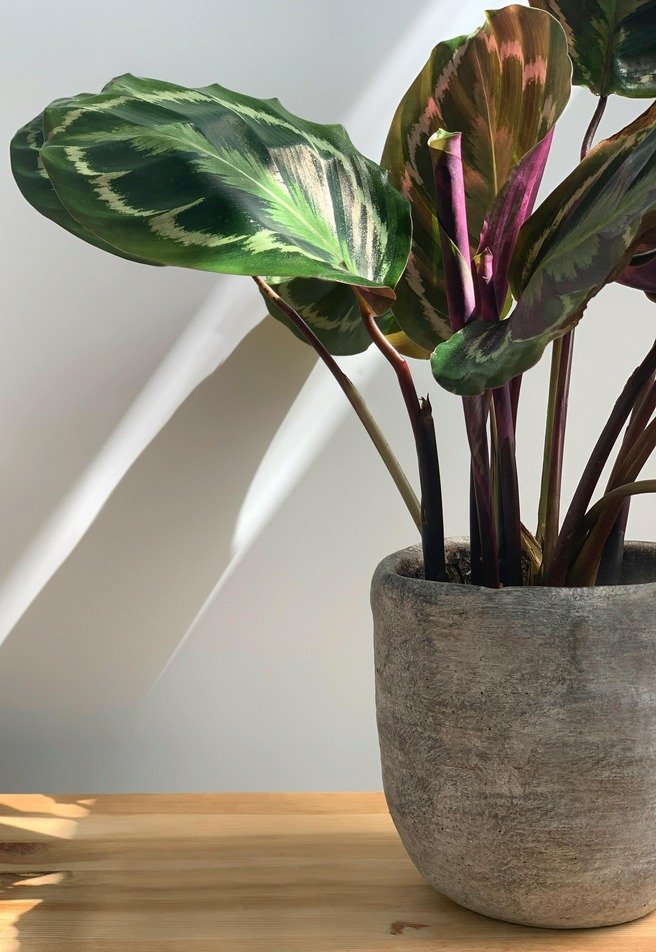
8. Calathea
Aesthetic Appeal
Calatheas are known for their bold, patterned leaves similar to rattlesnake green leaves. At night, its leaves fold up adding a unique touch to your decor. Its beauty comes with a great addition of being pet-friendly!
How To Care
Light: Prefers low to medium indirect light.
Water: Prefers consistent moist soil and high humidity.
Difficulty: Moderate. Requires regular watering and humidity control.
Pros & Cons
Pros
- Unique foliage with complex patterns.
- Thrives in lower light conditions.
- Safe for pets.
Cons
- Sensitive to overwatering or underwatering. Dry soil is a bad thing.
- Requires filtered water or distilled water to prevent brown leaves.
- Sensitive to chemicals in tap water.
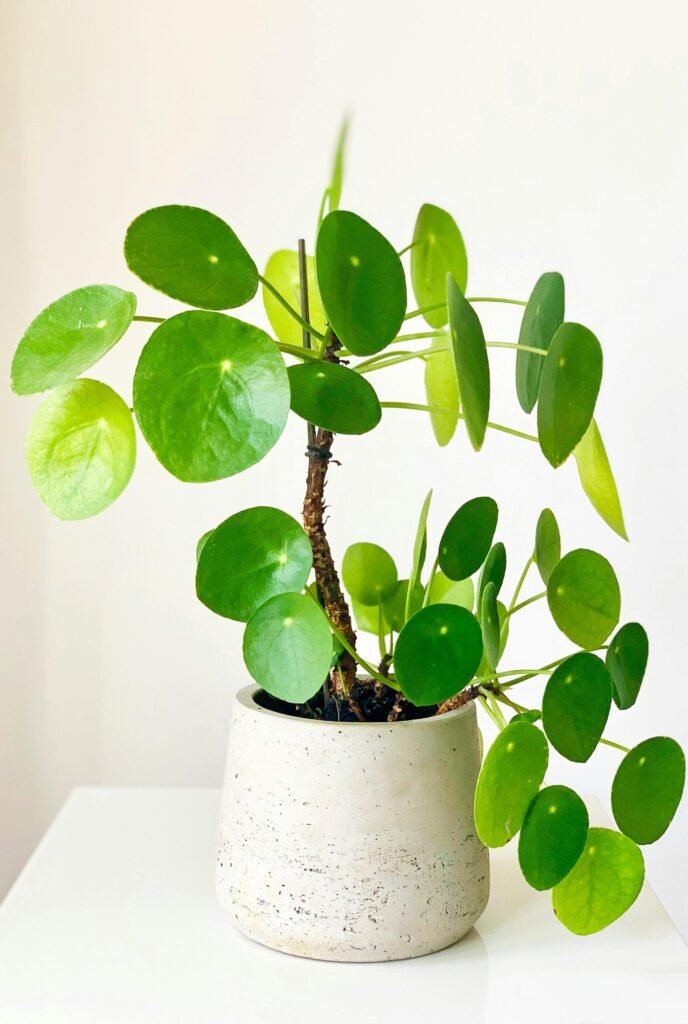
9. Chinese Money Plants
Aesthetic Appeal
Chinese money plants are loved for their round, coin like leaves that grow on delicate upright stems. It offers a modern and eye catching addition to your home! While its stylish foliage, it’s safe for pets!
How To Care
Light: Prefers bright, indirect light.
Water: Allow soil to dry out slightly between watering schedules.
Difficulty: Easy. Perfect for beginners!
Pros & Cons
Pros
- Distinct foliage.
- Easy to propagate.
- Low maintenance.
- Safe for pets.
Cons
- If overwatered, leaves may droop.
- Requires occasional repotting for continued growth.
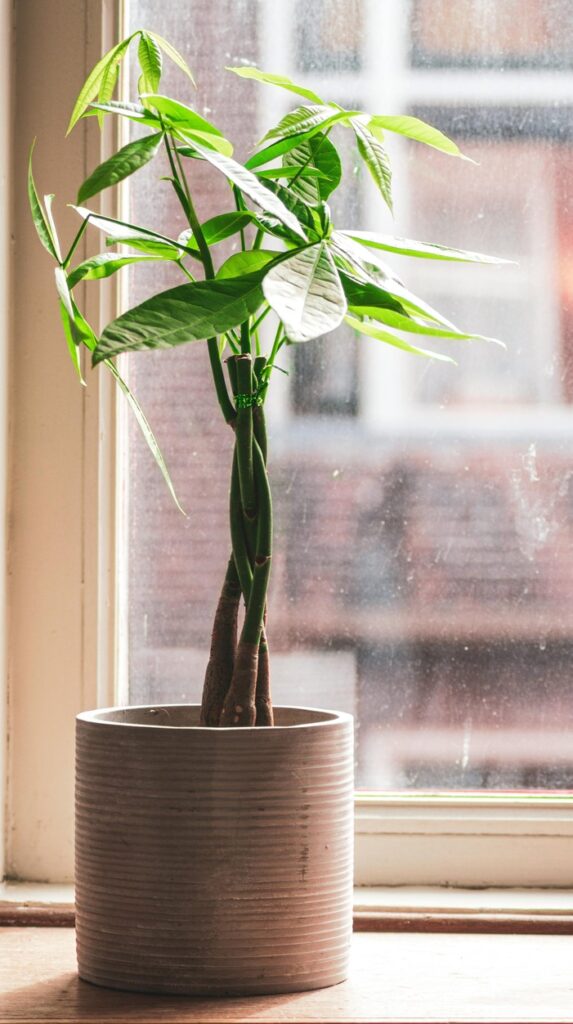
10. Money Trees
Aesthetic Appeal
Money trees are widely a popular choice among plant lovers. It provides your home or office with a beautiful tree full with lush, green leaves. It’s often seen as a symbol for prosperity and good luck. It adds a beautiful focus to any space. Money trees are able to stay as smaller plants, but with proper pots, it can become a large money tree. Pruning can promote new growth. Perfect plant for homes with indoor pets!
How To Care
Light: Prefers bright, indirect light.
Water: Water when the top inch of soil is dry. Overwatering will cause root rot.
Difficulty: Easy. Perfect for beginners.
Pros & Cons
Pros
- Attractive, braided trunks adds character.
- Bright green leaves to an indoor tree.
- A symbol of good luck.
- Safe for pets.
Cons
- Sensitive to overwatering.
- Needs occasional pruning to maintain shape.
How To Check If Your Plant is Toxic To Pets?
https://meows-woofs.com/wp-content/uploads/2025/03/PictureThis.mp4
If you’re ever unsure about your plant’s safety, apps like PictureThis can help identify plants and their toxicity levels. It’s an added step to ensure your home remains safe and stylish for you and your pets. PictureThis is user-friendly and will provide you information on how to care for the plant, pruning, planting times, toxicity levels for pets, and more!
Remember, creating a pet-friendly environment in your home is both achievable and rewarding. These non-toxic plants allow you to enjoy nature indoors with vibrant greenery without worrying about your pets’ safety. Don’t forget to use PictureThis if ever in doubt about a plant’s pet friendliness.
Looking for different air dried food for your pets?
RELATED POSTS
View all

